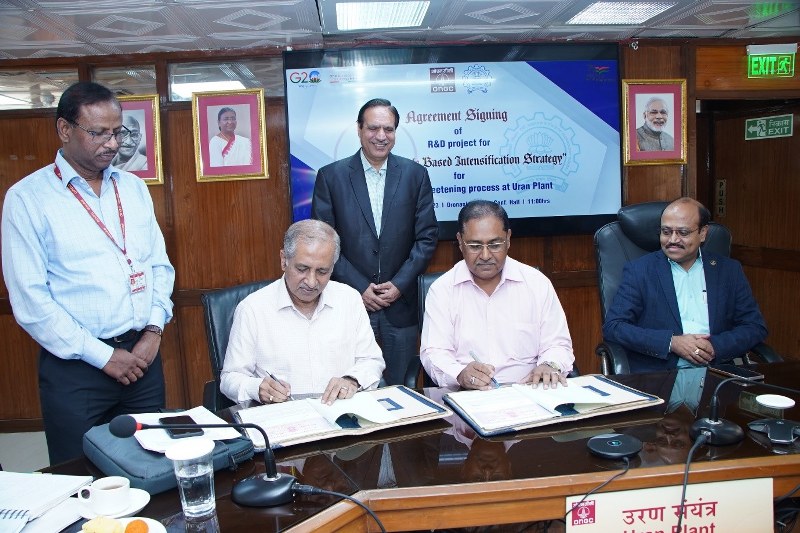 Gas Sweetening
Gas Sweetening
ONGC’s Uran Plant collaborates with IIT-Bombay to develop innovative gas-sweetening process
Mumbai/IBNS: ONGC’s Uran Plant in Navi Mumbai has signed a research and development (R&D) agreement with the Indian Institute of Technology, Bombay (IIT-B) to develop an innovative gas sweetening process using nano-fluids.
The project aims to use nano-fluids in the amine solvent of the Gas Sweetening Unit (GSU) to reduce the amount of solution required for absorption, thereby resulting in significant savings of material and steam, the state-owned energy major said in a press release on Wednesday.
"The gas sweetening process is crucial for ONGC’s Uran Plant, which receives natural gas from the Arabian Sea. Since its commissioning, it has been a constant endeavour of the Uran Plant to explore and adopt new cutting-edge technologies. This partnership is in continuation of this endeavor, with IIT-Bombay being eminent in the field of R&D," read the press release.
The typical process involves sweetening of natural gas in Gas Sweetening Units (GSU) before sending it to LPG units.
This process entails the reaction of tertiary amine solvent with natural gas, which leads to a lot of energy consumption.
"The ONGC-IITB partnership will pave the path to carry out experiments on absorption and desorption in an integrated manner with the potential to significantly reduce energy consumption, and save on material, energy, and steam, resulting in cost-effective benefits for the plant operations," according to the press release.
The project could also open avenues for novel innovation in gas-sweetening processes, bringing significant benefits to the national energy industry.
Support Our Journalism
We cannot do without you.. your contribution supports unbiased journalism
IBNS is not driven by any ism- not wokeism, not racism, not skewed secularism, not hyper right-wing or left liberal ideals, nor by any hardline religious beliefs or hyper nationalism. We want to serve you good old objective news, as they are. We do not judge or preach. We let people decide for themselves. We only try to present factual and well-sourced news.







